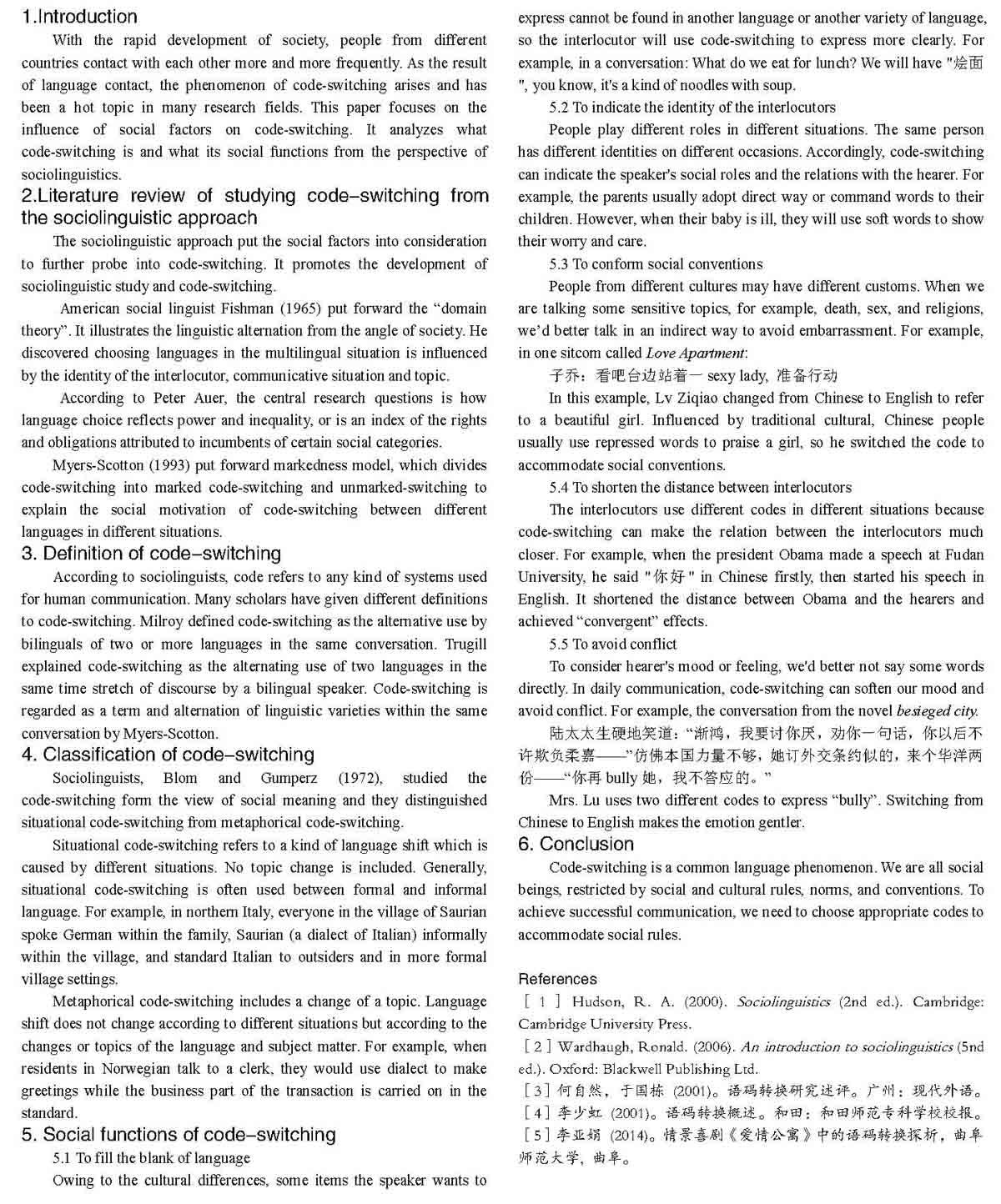Analysis on the Sociolinguistic Nature of Code—switching
柏亚荣

With the rapid development of society, people from differentcountries contact with each other more and more frequently. As the resultof language contact, the phenomenon of code-switching arises and hasbeen a hot topic in many research fields. This paper focuses on theinfluence of social factors on code-switching. It analyzes whatcode-switching is and what its social functions from the perspective ofsociolinguistics.
human communication. Many scholars have given different definitionsto code-switching. Milroy defined code-switching as the alternative use bybilinguals of two or more languages in the same conversation. Trugillexplained code-switching as the alternating use of two languages in thesame time stretch of discourse by a bilingual speaker. Code-switching isregarded as a term and alternation of linguistic varieties within the sameconversation by Myers-Scotton.
Situational code-switching refers to a kind of language shift which iscaused by different situations. No topic change is included. Generally,situational code-switching is often used between formal and informallanguage. For example, in northern Italy, everyone in the village of Saurianspoke German within the family, Saurian (a dialect of Italian) informallywithin the village, and standard Italian to outsiders and in more formalvillage settings.
Metaphorical code-switching includes a change of a topic. Languageshift does not change according to different situations but according to thechanges or topics of the language and subject matter. For example, whenresidents in Norwegian talk to a clerk, they would use dialect to makegreetings while the business part of the transaction is carried on in thestandard.
The interlocutors use different codes in different situations becausecode-switching can make the relation between the interlocutors muchcloser. For example, when the president Obama made a speech at FudanUniversity, he said " 你好" in Chinese firstly, then started his speech inEnglish. It shortened the distance between Obama and the hearers andachieved “convergent” effects.

